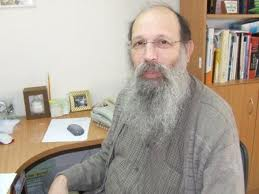
From medical training at Oxford, to family practitioner in the largely Yemenite Rosh Ha’ayin; from Chair of Family Medicine and then of Behavioral Sciences at Tel Aviv University to helping to set up Bar Ilan University’s Faculty of Medicine in the Galilee, family practitioner and medical ethicist Michael Weingarten has always focused on values.
Since its opening in 2011, the Faculty has emphasized social accountability. So Professor Weingarten, currently associate dean, was pleased when SHATIL approached him about its new project to bridge the serious gaps in health services between the north and center of the country. Along with three other faculty members and a student, he joined the first SHATIL training on this issue in the Eastern Galilee.
“Social accountability includes advocacy and there is constant discussion in medical circles about whether advocacy is part of the physician’s mandate and whether it should be part of a medical school’s curriculum,” said Weingarten. “Should we be educating students to see advocacy for health rights as part of their professional responsibility?
“When SHATIL approached me and suggested setting up this course for health advocacy in the north, I jumped at the opportunity.”
Prof. Weingarten gave the opening lecture on the dramatic effect of economic and social factors on health at SHATIL’s pilot course, which took place at the Faculty in 2013 over nine months.
“The course helped to change the discourse about health in the north,” said Weingarten. “And participants launched at least two programs they devised from scratch during the training. The first is a community-based admissions unit, which enables psychiatric patients to recover outside of a hospital setting. Two individuals – a professor and clinical psychologist/course participant – established the pilot in Jerusalem in February and if that works, they will start a second one in the Galilee. This is a very tangible outcome.”
This process shows that a robust civil society can play a critical role in improving health services in the country’s periphery and that when professionals approach the government with a serious need and a concrete solution, “the state comes in like a magnet with its resources,” as project consultant Marganit Ofir Gutler, says.
The second outcome Weingarten referred to entails a plan to set up a day rehabilitation center in the upper Galilee, where there is a serious dearth of such facilities.
“SHATIL is succeeding in activating Galilee residents toward health advocacy,” said Weingarten. “People in the SHATIL course were really quite amazing and participating in it was a wonderful experience. I am very impressed by what I see.”
